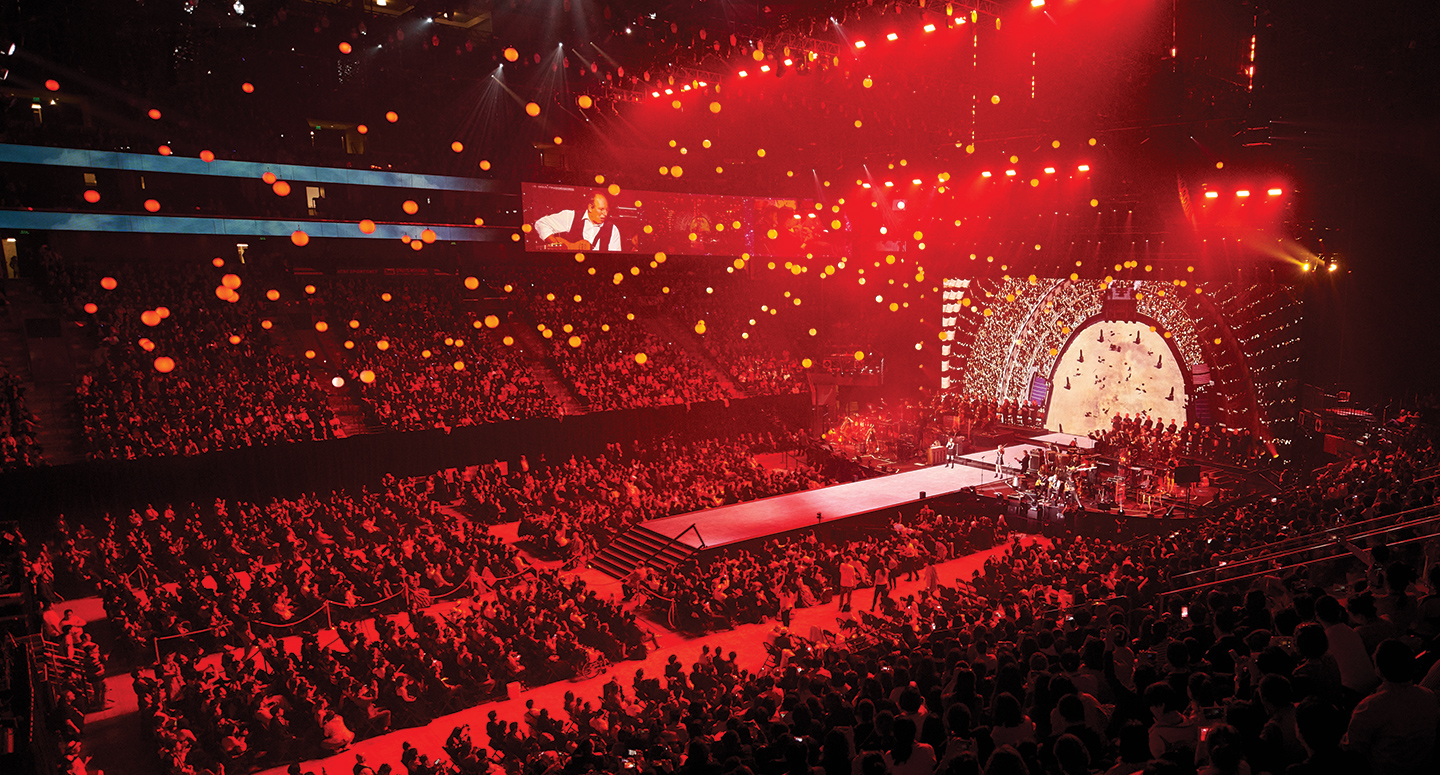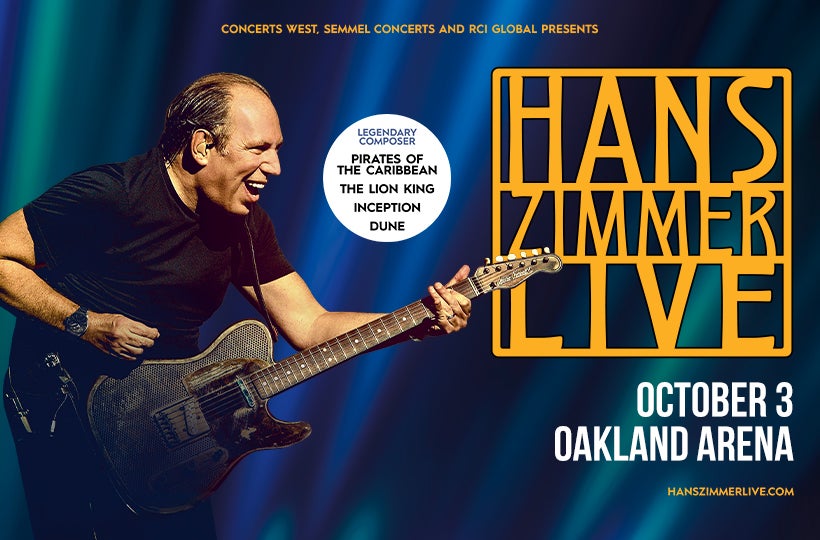Hans Zimmer’s Oakland Concert: A Retrospective

Hans Zimmer’s Oakland concert was a musical extravaganza that left an indelible mark on the city’s music scene. Held at the historic Paramount Theatre, the concert featured a captivating setlist that showcased Zimmer’s diverse range as a composer. The audience was treated to a mesmerizing blend of orchestral pieces, electronic soundscapes, and iconic film scores.
Special Guests
Zimmer was joined by a stellar lineup of special guests, including vocalist Lisa Gerrard, guitarist Johnny Marr, and the Oakland Symphony Orchestra. Each guest brought their unique talents to the stage, enhancing the overall experience and creating a truly unforgettable evening.
Audience Reception
The audience’s reception was overwhelmingly positive, with thunderous applause and standing ovations throughout the concert. Zimmer’s ability to connect with the audience on an emotional level was evident in the palpable energy that filled the theatre. The concert was a testament to Zimmer’s enduring legacy as one of the most influential composers of our time.
Impact on Zimmer’s Career
The Oakland concert was a significant milestone in Zimmer’s career. It marked his first major live performance in over a decade and showcased his versatility as a composer beyond the realm of film music. The concert also helped to solidify his status as a global icon, attracting fans from around the world.
Impact on the Music Industry
The concert’s success had a ripple effect on the music industry, inspiring other composers to explore the possibilities of live performances. It also demonstrated the growing popularity of film music as a standalone genre, capable of captivating audiences outside of the cinematic context.
Analyzing Hans Zimmer’s Musical Style in Oakland: Hans Zimmer Oakland

Hans zimmer oakland – Hans Zimmer’s Oakland concert showcased his unique and evocative musical style, which has left an indelible mark on the film music genre. Zimmer’s compositions are characterized by their sweeping melodies, powerful orchestration, and innovative use of electronic and ethnic instruments.
Orchestral Mastery
Zimmer’s music often features a large orchestra, with strings, brass, and woodwinds playing a prominent role. He uses these instruments to create lush and textured soundscapes that evoke a wide range of emotions. In his Oakland concert, Zimmer showcased his mastery of orchestral writing, with pieces that soared with passion and intensity.
Electronic Edge
In addition to traditional orchestral instruments, Zimmer also incorporates electronic elements into his music. Synthesizers, samplers, and other electronic devices add a modern and edgy sound to his compositions. This combination of orchestral and electronic elements gives Zimmer’s music a unique and distinctive character.
Ethnic Influences
Zimmer’s music is also influenced by a variety of ethnic traditions. He often incorporates elements of world music into his compositions, such as African rhythms, Indian melodies, and Chinese instruments. This diversity of influences gives Zimmer’s music a global and eclectic feel.
Comparison to Other Composers
Compared to other composers in the film music genre, Zimmer’s style is characterized by its emotional intensity, innovative use of technology, and global influences. While composers like John Williams and Ennio Morricone are known for their sweeping melodies and lush orchestrations, Zimmer’s music is more experimental and eclectic. He is not afraid to push boundaries and explore new sounds and techniques.
The Oakland Concert as a Cultural Event

Hans Zimmer’s Oakland concert was not just a musical performance; it was a cultural event that resonated deeply with the city’s musical heritage and cultural identity. The concert showcased the city’s vibrant music scene and celebrated its rich musical history.
Oakland’s Musical Heritage, Hans zimmer oakland
Oakland has a long and storied musical history, dating back to the early 1900s. The city was a major center for jazz and blues in the 1920s and 1930s, and it has continued to produce talented musicians in a variety of genres ever since. Hans Zimmer’s concert was a tribute to this musical heritage, and it featured a diverse lineup of local artists who represented the city’s musical diversity.
Cultural Identity
The concert also reflected Oakland’s cultural identity. Oakland is a diverse city with a strong sense of community. The concert brought people together from all walks of life, and it created a sense of unity and pride. The concert was a celebration of Oakland’s unique culture, and it helped to strengthen the city’s sense of identity.
Impact on the Local Music Scene
Hans Zimmer’s Oakland concert had a significant impact on the local music scene. The concert helped to raise the profile of local musicians, and it inspired a new generation of musicians to pursue their dreams. The concert also helped to create a sense of community among local musicians, and it led to the formation of new musical collaborations.
Hans Zimmer’s stirring melodies, like those that graced the Oakland stage, have an uncanny ability to evoke emotions that dance within the soul. They transport us to a realm where Justin Timberlake’s poppers become a symphony of sweet notes, blending seamlessly into the tapestry of Zimmer’s cinematic masterpieces.
As the final chords reverberate through the air, we are left with a lingering echo of Oakland’s enchantment, carried by the timeless strains of Hans Zimmer’s music.
Hans Zimmer’s Oakland concert, a symphony of sound that resonated with the city’s vibrant spirit, was a testament to the power of music. But as the echoes of the last note faded, a different kind of story unfolded in the shadows of the city.
Justin Timberlake, the enigmatic pop star, found himself facing charges of DUI , a stark reminder that even the brightest stars can lose their way. Yet, amidst the noise of controversy, Hans Zimmer’s music continues to reverberate, offering a soothing balm to a city grappling with its own complexities.
Hans Zimmer’s epic compositions have reverberated through the annals of film history, evoking emotions that transcend the screen. As the summer sun casts its golden rays upon Oakland, the city prepares to commemorate Juneteenth, a day of liberation and celebration.
Juneteenth events offer a vibrant tapestry of music, art, and community gatherings, reminding us of the indomitable spirit that has shaped our nation’s journey. Amidst the festivities, the strains of Hans Zimmer’s music will surely provide a poignant backdrop, a testament to the power of human expression and the unwavering resilience that binds us together.
Hans Zimmer’s mesmerizing compositions for the “Oakland” film series continue to captivate audiences. His evocative melodies linger in the air, leaving an imprint on our collective consciousness. Yet, amidst this musical brilliance, a question arises: why was Justin Timberlake arrested?
The answer lies in the intricate tapestry of human choices and the consequences that follow. Timberlake’s actions that fateful night in Memphis serve as a stark reminder of the fragility of our freedom and the importance of accountability. As we delve into this intriguing tale, we cannot help but appreciate the complex interplay between art and life, and the enduring power of music to both inspire and reflect our human experience.
The soul-stirring melodies of Hans Zimmer’s Oakland Symphony resonated through the streets, echoing the vibrant spirit of the Lake Merritt Juneteenth celebration. The symphony’s notes danced in harmony with the laughter and joy that filled the air, creating a tapestry of unity and remembrance.
As the symphony’s final chords faded into the evening, the legacy of Hans Zimmer’s music continued to inspire and connect the Oakland community, leaving an enduring mark on the city’s cultural landscape.